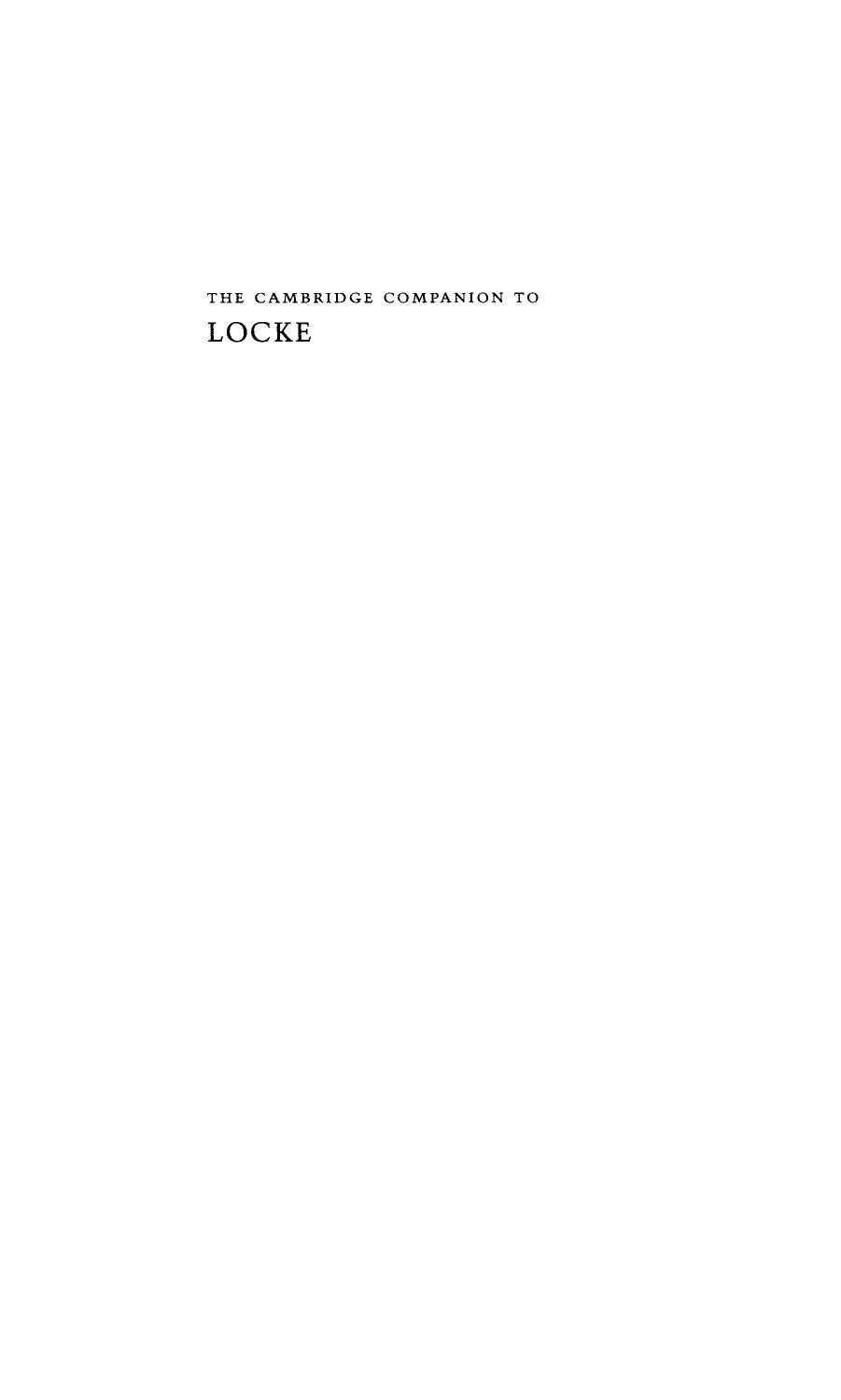The Cambridge Companion to Locke by Vere Chappell

Author:Vere Chappell [Vere Chappell]
Language: eng
Format: epub, pdf
ISBN: 100521651220
Publisher: Cambridge University Press
Besides looking forward to a more recent distinction, Locke's distinction between knowledge and belief also looks back to an older one: the Aristotelian distinction between “scientific knowledge” and “opinion.” Knowledge, as defined and explained in the Aristotelian tradition, has to do with what must be so and cannot be otherwise; and, for Locke too, “knowledge” is “certain and universal” (E IV.iii.29: 559). We have seen, though, that whereas for the Aristotelian knowledge has a structure arising from its development and acquisition on the basis of syllogisms that have maxims and definitions for premises, for Locke it does not. “Science” for him is a body of deductively related knowledge, but he places no particular value on syllogistic methods and abstract maxims.
As for “opinion,” it has to do with contingencies on the traditional view, with things that might have been otherwise. As we have seen, however, this is not the case for Locke. It is true that, for him, natural philosophy, that collection of “beliefs” about substances and their properties, is not a science or body of knowledge. But this is because of the nature of our understandings, and not because of the nature of things. So whereas for the Scholastic tradition “opinion” concerns contingencies, for Locke it concerns what to us seem like contingencies, but what in reality may be universal certainties.
A feature of the Scholastic tradition was that the pursuit of scientia was the proper use of man's reason. Man is a rational animal, and one thing that was taken to mean is that he is a syllogistic reasoner. Opinion is not worth or even capable of serious and systematic attention. Indeed, talk of “system” is out of place in its connection, for it would imply an arrangement structured by syllogistic demonstrations from first principles. But Locke thinks that “opinion” is worth systematically searching for and having. There can be a body of it, and it is “natural philosophy.” Even for him, it is, of course, not a “science”; and to that extent Locke is under some influence from the older tradition. But, as in the activities of many of his colleagues in the Royal Society, it can be systematically pursued; and to that extent, and as witnessed to by his occasionally calling the beliefs of natural philosophy “experimental Knowledge” (E IV.iii.29: 560; E IV.vi.7: 582), he is throwing off that influence.
Now, though we have no knowledge in natural philosophy, geometry and mathematics are not the only areas where we do have it. Commenting that it has indeed “been generally taken for granted, that Mathematicks alone are capable of demonstrative certainty” (E IV.ii.9: 534), Locke says that this assumption is false. Because the relevant ideas are modes, whose real essences we either do or might come to know, he thinks, perhaps surprisingly, that it may be possible to “place Morality amongst the Sciences capable of Demonstration: wherein I doubt not, but from self-evident Propositions, by necessary Consequences, as incontestable as those in Mathematicks, the measures of right and wrong might be made out” (E IV.
Download
The Cambridge Companion to Locke by Vere Chappell.pdf
This site does not store any files on its server. We only index and link to content provided by other sites. Please contact the content providers to delete copyright contents if any and email us, we'll remove relevant links or contents immediately.
The remains of the day by Kazuo Ishiguro(8961)
Tools of Titans by Timothy Ferriss(8358)
Giovanni's Room by James Baldwin(7313)
The Black Swan by Nassim Nicholas Taleb(7097)
Inner Engineering: A Yogi's Guide to Joy by Sadhguru(6782)
The Way of Zen by Alan W. Watts(6589)
Asking the Right Questions: A Guide to Critical Thinking by M. Neil Browne & Stuart M. Keeley(5751)
The Power of Now: A Guide to Spiritual Enlightenment by Eckhart Tolle(5741)
The Six Wives Of Henry VIII (WOMEN IN HISTORY) by Fraser Antonia(5493)
Astrophysics for People in a Hurry by Neil DeGrasse Tyson(5172)
Housekeeping by Marilynne Robinson(4432)
12 Rules for Life by Jordan B. Peterson(4298)
Double Down (Diary of a Wimpy Kid Book 11) by Jeff Kinney(4257)
The Ethical Slut by Janet W. Hardy(4235)
Skin in the Game by Nassim Nicholas Taleb(4231)
Ikigai by Héctor García & Francesc Miralles(4228)
The Art of Happiness by The Dalai Lama(4118)
Skin in the Game: Hidden Asymmetries in Daily Life by Nassim Nicholas Taleb(3985)
Walking by Henry David Thoreau(3948)
